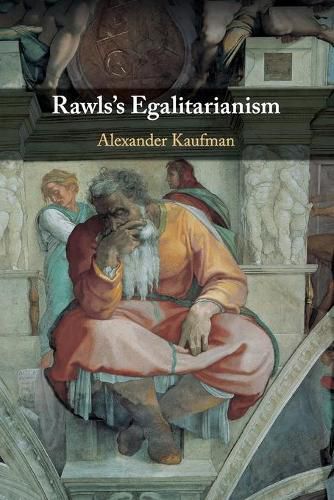Readings Newsletter
Become a Readings Member to make your shopping experience even easier.
Sign in or sign up for free!
You’re not far away from qualifying for FREE standard shipping within Australia
You’ve qualified for FREE standard shipping within Australia
The cart is loading…






This is a new interpretation and analysis of John Rawls’s leading theory of distributive justice, which also considers the responding egalitarian theories of scholars such as Richard Arneson, G. A. Cohen, Ronald Dworkin, Martha Nussbaum, John Roemer, and Amartya Sen. Rawls’s theory, Kaufman argues, sets out a normative ideal of justice that incorporates an account of the structure and character of relations that are appropriate for members of society viewed as free and equal moral beings. Forging an approach distinct amongst contemporary theories of equality, Rawls offers an alternative to egalitarian justice methodologies that aim primarily to compensate victims for undeserved bad luck. For Rawls, the values that ground the most plausible account of egalitarianism are real equality of economic opportunity combined with the guarantee of a fair distribution of social goods. Kaufman’s analysis will be of interest to scholars and advanced students of political theory and political philosophy, particularly those working on justice, and on the work of John Rawls.
$9.00 standard shipping within Australia
FREE standard shipping within Australia for orders over $100.00
Express & International shipping calculated at checkout
This is a new interpretation and analysis of John Rawls’s leading theory of distributive justice, which also considers the responding egalitarian theories of scholars such as Richard Arneson, G. A. Cohen, Ronald Dworkin, Martha Nussbaum, John Roemer, and Amartya Sen. Rawls’s theory, Kaufman argues, sets out a normative ideal of justice that incorporates an account of the structure and character of relations that are appropriate for members of society viewed as free and equal moral beings. Forging an approach distinct amongst contemporary theories of equality, Rawls offers an alternative to egalitarian justice methodologies that aim primarily to compensate victims for undeserved bad luck. For Rawls, the values that ground the most plausible account of egalitarianism are real equality of economic opportunity combined with the guarantee of a fair distribution of social goods. Kaufman’s analysis will be of interest to scholars and advanced students of political theory and political philosophy, particularly those working on justice, and on the work of John Rawls.